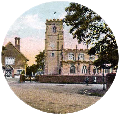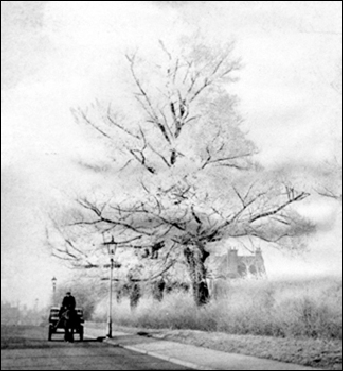KENILWORTH ROAD
In medieval times Kenilworth Road was far more significant than Warwick Road: it
led to Kenilworth Castle, which was a royal castle, and also to Coventry. There
would have been traffic between Knowle and Coventry, which was a major city with
powerful trade guilds. The family of Walter Cook (the founder of Knowle Church)
is known to have had connections with Coventry.
The medieval village developed along Kenilworth Road, particularly in the area between
Kixley Lane and the Manor House, which is known as Golden End. However, nothing
from this period which pre-dates the church and Guild House is thought to be left
standing in the centre of the village Milverton House and the Manor House are on
early foundations, and excavations have indicated early building at Knowle Hall;
but the black and white we see today is Tudor or later.
Some of Knowle’s oldest buildings, dating from the 16th/17th centuries, can still
be found here, including a picturesque row of timbered cottages with long gardens.
There are signs of ridge and furrow cultivation in a field at the rear of Cook Close.
Nearer The Square, between the church and Kixley Lane, the present buildings are
late Victorian. For a time, until about 1871, both High Street and Kenilworth Road
were called simply Knowle Street. Further along, Kenilworth Road used to be called
Knowle Hall Lane.
Left: Mr.Robbins on Landers’ milk cart in Kenilworth Road.
Above: Golden End Cottages, 2008.




